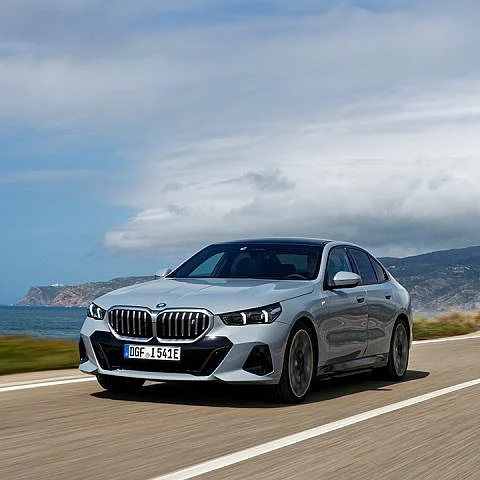

BMW AG experienced a significant boost in sales of fully electric vehicles (EVs) during the first quarter of this year. This surge outpaced competitors like Tesla and Volkswagen, who have been grappling with a decline in demand. Customer deliveries of battery-powered models such as BMW’s i4, iX1, and i7 saw a remarkable 41% increase in the three months through March compared to the same period last year. This growth contributed to a 28% rise in group EV sales overall.
This positive performance stands in contrast to the broader slowdown in EV demand, particularly in Europe. Incentives for EV purchases were withdrawn by governments, leading to a flattening of battery-powered car sales as a proportion of overall sales. Volkswagen AG reported a 3% decrease in EV deliveries in the first quarter, with gains in China failing to offset a 24% decline in Europe. Similarly, Mercedes-Benz Group AG witnessed an 8% decrease in wholesale EV sales, citing supply-chain issues and sluggish demand in Germany after state subsidy programs were terminated.
Despite these challenges, BMW’s shares experienced a rise of up to 1.3% on Wednesday, reflecting a 14% increase in stock value year-to-date. This places BMW slightly ahead of rival Mercedes-Benz over the past 12 months. In contrast, Volkswagen shares have remained stable over the past year, while Tesla’s shares have seen a 4.4% decline.
BMW’s success in EV sales is attributed to its strategic rollout of new battery models, including the i4 sedan and the iX2 crossover. The company entered the EV market earlier than many competitors with the development of the i3 city car, gaining valuable experience in battery technology. Despite initial mixed reviews of the i3 model, BMW has remained committed to its EV strategy, focusing on volume-based sales to maintain competitiveness.
According to Citi analyst Harald Hendrikse, BMW’s approach prioritizes volume over exclusivity compared to Mercedes-Benz. However, future growth may become challenging as the luxury segment and the Chinese market experience a slowdown.
EVs accounted for approximately 15% of BMW’s total deliveries last year, with expectations to increase to 20% this year. The company aims to further boost this share by targeting half a million EV sales, leveraging its portfolio of 15 fully electric models across its brands.
However, BMW faces tough competition in China, its largest market, where a sluggish economy and intense price competition led by Tesla are impacting the industry. While BMW and Mini brand vehicle sales in China declined by 3.8% in the first quarter, deliveries increased by 5.5% in Europe and 1.2% in the US during the same period.
